
The regions North Point School offers busing from are:
Additional notes: North Point School offers two bus routes for 2019-20. - Route 1 - Cochrane to/from North Point School (via Crowchild Tr.) - Route 2 - SW/SE route which will start in Chapparal with stops in McKenzie Towne, Will Park, Woodlands, Chinook Park, North Glenmore and Altadore.
How we see North Point School
Compare with:
How North Point School sees itself
"Believing that boys and girls learn differently and have unique needs, North Point Schools offers 3 distinct and exciting programs. Our SCHOOL FOR BOYS (Gr. K-9) and taps into boys’ natural curiosity and energy as a foundation for life-long learning as we TEACH BOYS the way boys LEARN. Our Gr. K-9 SCHOOL FOR GIRLS strives to build self-confidence and allow girls to develop their passions. In our co-educational HIGH SCHOOL, we LAUNCH LEADERS who can successfully navigate the adventure that awaits."
"North Point’s program is designed to ensure that students master core skills, while allowing them to further explore topics that they are passionate about. We design environments and experiences that are specifically geared to challenge and engage learners by focusing on their interests in practical problem-solving, hands-on learning, leadership and outdoor exploration. We understand the importance of freedom within the school structure and of developmentally appropriate education."
"This is student-driven education, designed to help each student discover and nourish their talents and passions. They will have a clear vision of who they want to become, and they will have the academic and real-world skills needed to get there. North Point is about changing the way all students are taught on every level, working with their strengths, and appealing to their distinct learning style."
"Since our inception, North Point's Financial Education program has been leading the way in Canada. The Financial Education program at North Point provides students with economic and personal financial literacy and entrepreneurship lessons. This state-of-the-art program is designed to engage a student’s understanding of financial literacy as a critical life-skill. All students from K - 12 take part in this program as part of our mandatory curriculum."
"Parents find the breadth of our Our Active Living program surprising. It is about enhancing education by providing fun, safe, cross-curricular activities that give practical application to concepts learned in the classroom. These activities also provide opportunity for character building, teamwork and leadership. Examples of these activities include:
· Gardening · Business Fair · Camping trips · Comedy/Drama Workshops · Team-Building Adventures – i.e. high ropes course
· Community Service"
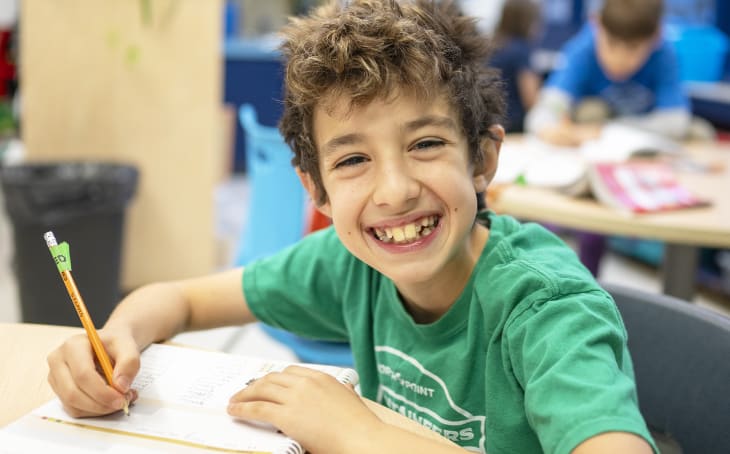

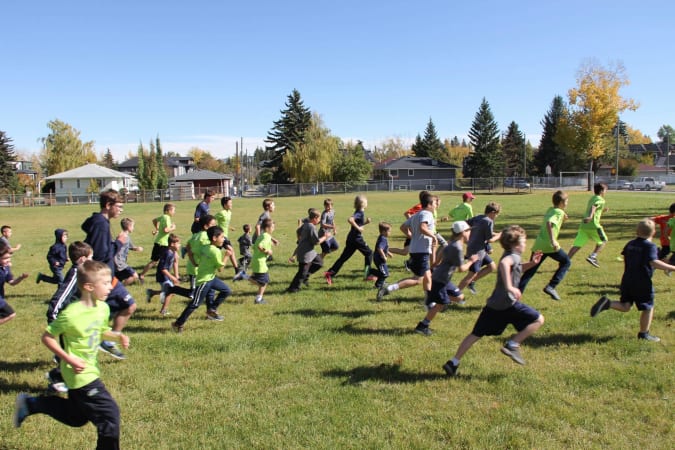







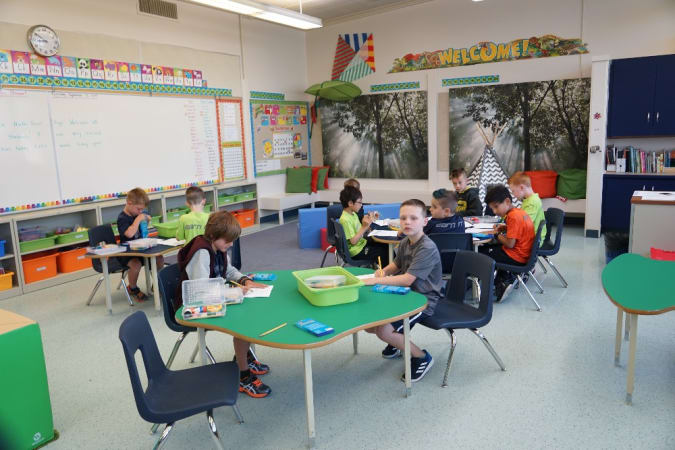
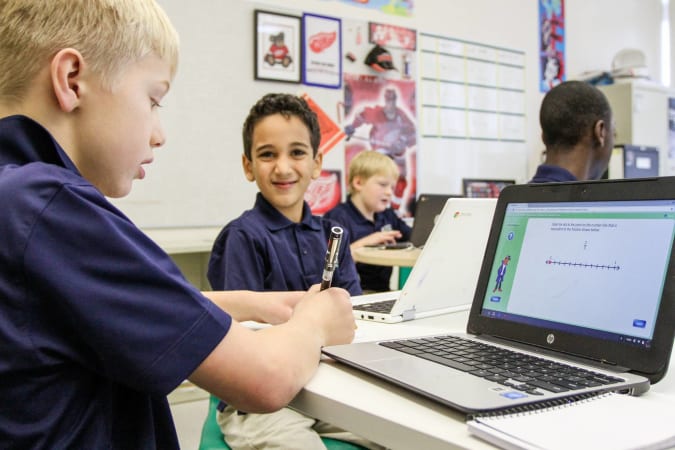



Guidance from professional Engineers.
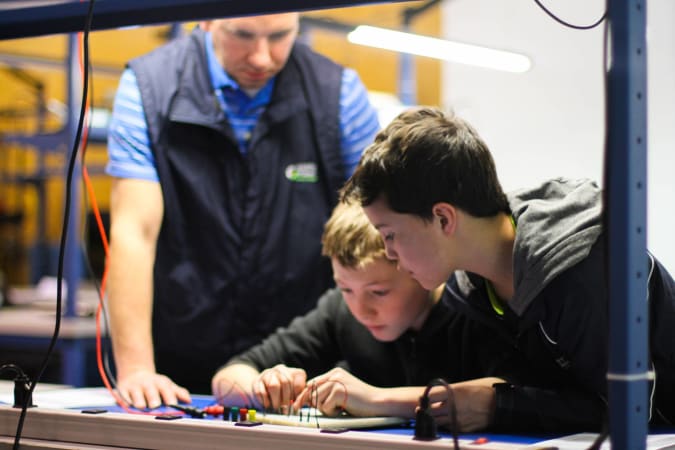
Hands on learning at the off-site Roots 2 Stem lab.




Technology is a key part of our daily learning environment.



Learning Commons

"Navigators" house teams come together to create.
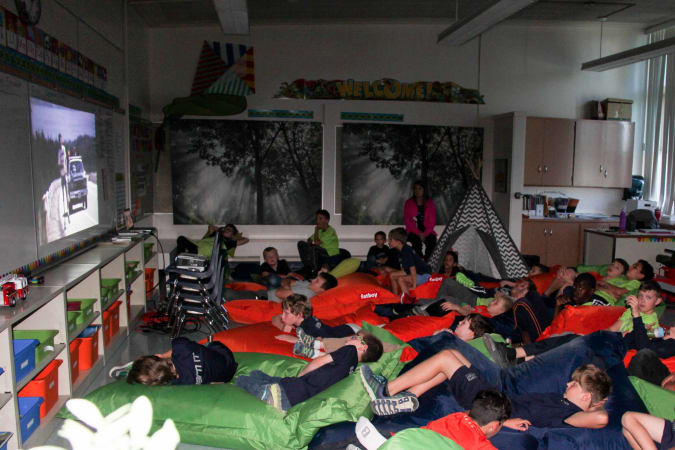
Students watching the Terry Fox video



How people from the school’s community see North Point School
Top-down influence on the school’s direction and tone

Brent Devost, Head of School
B. Ed.
From our teachers and staff to our students and parents, we have all come together around the common purpose of making education exciting, invigorating, challenging and enjoyable for our boys. Over the past decade boys have fallen behind in classroom achievement, numbers going on to post-secondary education, and numbers getting jobs out of University. The research points to an education system not ideally designed for how boys learn and behave.
An education system that once focused on math and science and which encouraged healthy competition, now pushes reading and writing at a much younger age and rewards students who can sit still and listen quietly. This approach is not very effective for many boys, who tend to be kinesthetic learners. On occasion, this creates behaviour problems in the classroom simply because boys listen and learn better if they can move around and manipulate things. North Point provides a blended learning approach (using direct instruction and integrated technology platforms), and a daily program which integrates outdoor education and physical activity. This creates an environment where boys learn more attentively in a way that makes sense for them.
Research shows that boys develop language skills later than girls, and yet the pressure to read and write begins early in kindergarten, putting boys at a disadvantage right out of the gate, often turning them off school before they can develop a love of learning.
Teachers who have experience in an all boys' environment recognize that boys arrive to school fidgety, less organized and with a fascination for exploration, adventure and building. North Point School is about changing the way that boys are taught on every level, working with their strengths and appealing to their individual learning style.
Most big schools provide your extroverted child with plenty of social opportunities and the ability to interact with different peer groups with a wide range of personalities, interests, values, etc. A larger student population and more extracurriculars—including activities like team sports, arts programs, and debate—will give them a broader scope of opportunities to participate in events that scratch their interpersonal itch. “This may also give them the opportunity to hone certain skills,” say Ann and Karen Wolff of Wolff Educational Services. “For instance, they might run for student council to develop leadership and public speaking skills and learn to be a voice for other students.”
Make sure any prospective school, no matter what size, provides the right social environment to help your child feel at home, make friends, and develop confidence. This is especially important at big schools, which are sometimes more socially overwhelming and challenging for an introvert to find their bearings in. Of course, “Because larger schools usually have a more diverse student population, introverted kids are more likely to find a small group of people like them, a peer group they can relate to and find acceptance from,” says Dona Matthews, Toronto-based education consultant and co-author (with Joanne Foster) of Beyond Intelligence.
Bigger schools often have a broader scope of extracurricular activities, which is another way to help your child meet the right group of friends. “This may also give them the opportunity to develop certain skills,” say Ann and Karen Wolff of Wolff Educational Services. “For instance, they might run for student council to develop leadership and public speaking skills and learn to be a voice for other students. Remember, though, each child is different—so what works for one may not work for another.”
THE OUR KIDS REPORT: North Point School
Next steps to continue your research:
Continue researching North Point School with OurKids.net, or visit school website.